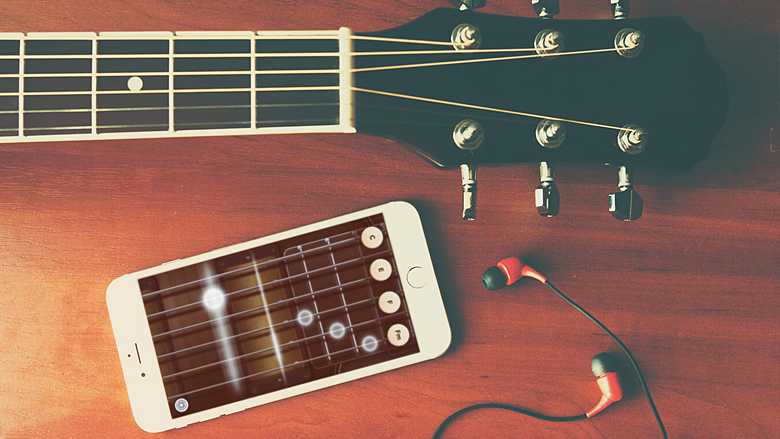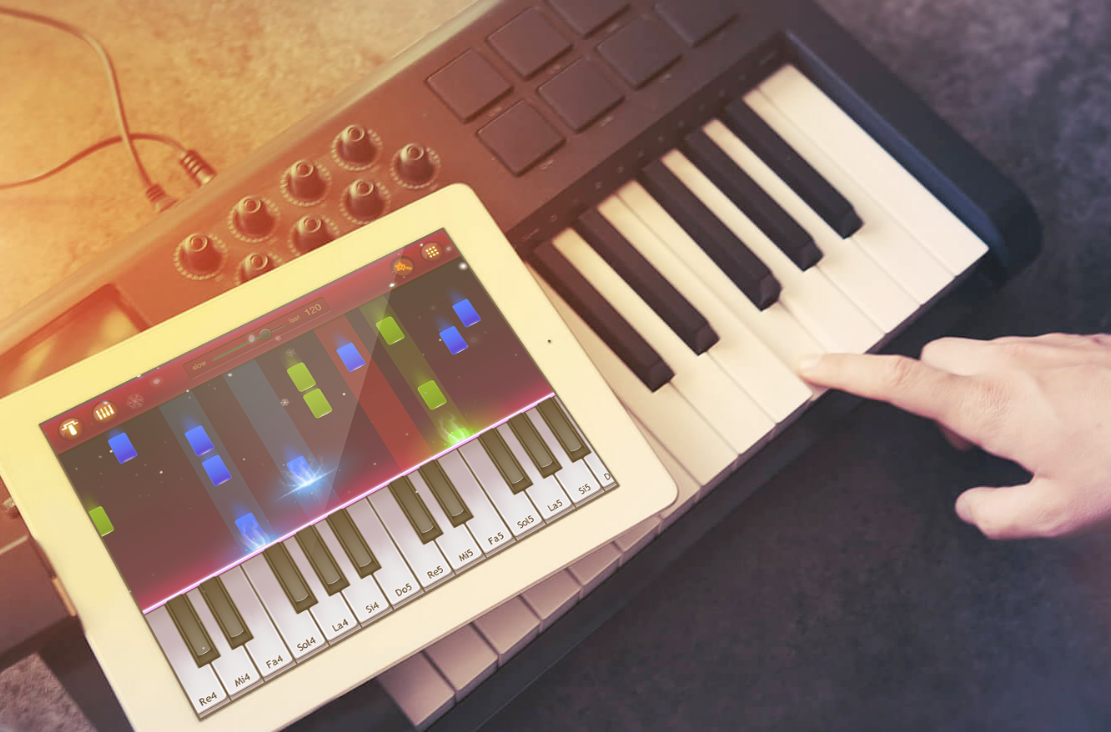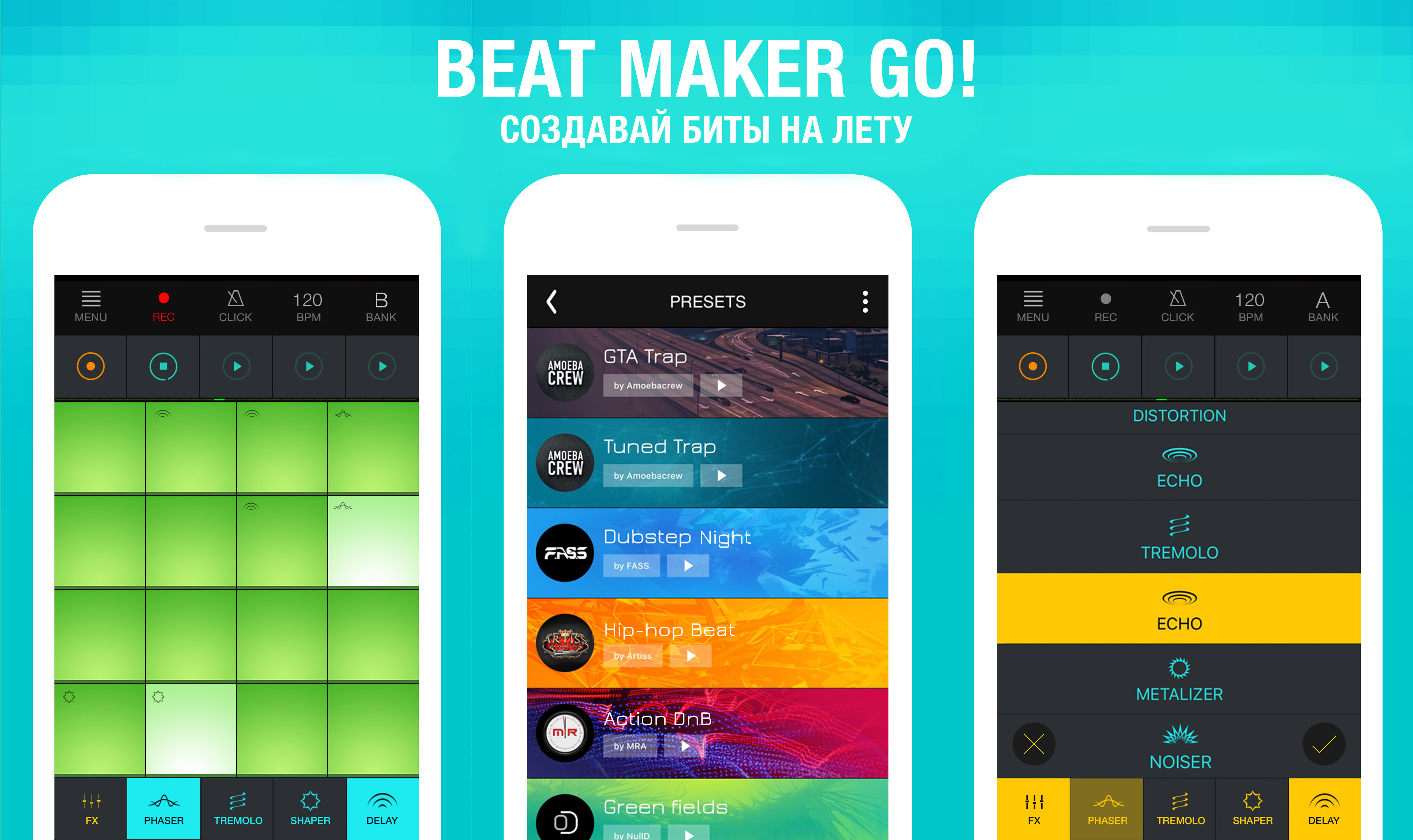"The main way of income of music applications is subscription": Gismart about itself and the market of mobile music games
After reaching the mark of more than 130 million downloads, the Anglo-Belarusian company Gismart announced that it is ready to take up the publication of music-oriented games from third-party teams. We talked with the co-founder and CTO of the company Alexander Mints about where the company started and on what conditions it is ready to publish external projects.

Hi! Tell me, please, what does the company do?

Alexander Minets
We develop mobile music games and applications. In parallel, we are trying ourselves as a publisher for third-party developers.
How many of you are there?
We are now around 45 people in offices in Minsk and London. We continue to recruit staff. Most recently, six months ago, there were about 15 of us. We have grown very rapidly recently and continue to grow, by the end of the year there will be 50 people.
How did the history of the company begin and why did they decide to make music games and applications?
It started in 2013, my friends and colleagues and I made one application. We wanted to try our hand at something new for ourselves. I play guitar a little bit, the guys also had some skills in this. That’s why we decided to try to transfer our guitar playing experience to a mobile app. It unexpectedly began to be in demand for us. Naturally, at that time we didn’t know how to do anything special, we didn’t understand promotion. The application itself gained positions and momentum due to virality and, possibly, uniqueness. So we started thinking about other music apps in order to develop it all.
How many downloads were there when you realized that the very first app was a viral success?
Success is probably too big a word. I realized that we were doing something right when they wrote about us on iPhones.ru . Moreover, the editor contacted us himself. And then we thought that – yes, we are, it turns out, noticeable.
Was the publication the turning point?
Maybe. After the publication, of course, there was a boost. Especially in the CIS countries. And then we thought it was time to put this matter into a professional channel.
Before the apps were released, did you work as a programmer, or did you hold a managerial position?
I worked as a QA team lead. But I had programming skills.
What kind of management system did you create?
Everything was created according to the laws of logic. At first we didn’t even know what Agile was. There was such a startup inside the company. We did and looked at the result. Is there a result? Cool! The work did not give results? Let’s try something different. In this mode existed.
When did you switch to a more serious regime? Or is the company still preserved in this form?
No, later my friends joined the work, who had experience in building a company, establishing processes. A more serious approach. That’s why I was interested in working with them. Together, a successful collaboration turned out. From that moment on, everything went – it became more serious and corporate.

Piano
How is the company functioning now? How are the processes built, what systems do you use?
We try to stick to Scrum. We have a product owner, the owner of the product that generates features. There is a project manager who splits these features into tasks, brings them to the team, plans, and makes sure that everything is done. And there is a team that does all this, brings all ideas to life. Also, the marketing department, which is divided into areas, the business development department, which is engaged in working with copyright holders on licenses for music content, among other things.
The first project, Real Guitar, set the direction. And when did the big commercial success come? Or was it a progressive process?
There was no take-off. Everything happened gradually, there was constant growth, we released new products and it was clear that we were doing everything right, because the indicators and application jumps were increasing.
What is the company’s most successful project to date?
Today, the Gismart Piano project is already ahead of Real Guitar [in downloads], it covers a wider audience. It’s going a little better.
Both of these projects are applications, right? Or do you call them games?
We are gradually adding game functionality to these applications. Until some time we remained in the niche of simulators and applications for musicians. And at some point we decided that we had grown out of it, that we needed to move towards the fan, games. And just six months ago – which is the reason for the growth – we decided to finally move in this direction, to catch up with competitors. In our niche, we have achieved good, even good results. And the area of the fan, the games missed. Now we are actively catching up.
Tell us more about the game functionality, what is already in the applications today and what can we expect in the near future?
We have added game functionality with separate modes in our guitar and piano. They give the user the opportunity to play their favorite song on an instrument in a playful way without having any musical skills. In addition, we have added short practical tutorials when the user has the opportunity to repeat a familiar melody on the guitar or piano after they have listened to the melody, focusing on hints, for example, or simply holding the tempo of the melody. We are constantly expanding the list of songs, adding both classics and popular hits to make it interesting for the user to return to the applications.
We have several new games under development. Our first musical casual game with game mechanics in the style of a popular musical arcade will be released soon – with good graphics and interesting gameplay. There will be full-fledged guitar and keyboard games, we are already working on making a good selection of music content of different genres, partnering with the main music publishers.
Can you tell us a little about the project indicators?
At the moment, our monthly audience is measured in millions. And these are 90% organic installations. The total number of downloads for the entire existence of the company has already exceeded 130 million.

Beat Maker Go!
You say that you are going to make games yourself, and at the same time, as far as I know, you are looking for developers to act as publishers. In which direction did you decide to move and why?
These are two parallel things. We have accumulated a lot of experience – we have worked in the mobile product industry for so many years, now we have moved to game dev, we have a good result, we know how to improve it and are now actively working on it.
Publishing is such a natural development of the company. We want to pass on our experience to novice teams that are also working or starting to do something in the niche of music applications and games. Somewhere we want to support, point out some obvious mistakes that we ourselves made at the time, so as not to step on the same rake. And thereby help to achieve significant success. These things do not overlap, they can be divided into departments. One initiative involves the development department more, the other – marketing. Therefore, we can do both things in parallel.
Who are you looking for?
We have a lot of ideas where to move in the music niche: games, educational applications, and so on. But we understand that if we do all this ourselves, there won’t be enough time to focus on our own tasks. Therefore, we decided that it would be good if we would share our experience, advise and promote the applications of other guys who come to us. We have a very strong marketing department with enough free resources to promote not only our own, but also third-party products. We are already working with a couple of indie developers.
Under what conditions do you work?
It all depends on the project, on the degree of our participation. In general, these are standard conditions for publishing.
A share of the revenue?
Rather, from profit.
There are almost no music games on the market right now. There is a series of Piano Tiles on mobile, there is something like Guitar Hero on consoles, there is something on portable consoles that Nintendo regularly offers. That’s all. What do you think this is connected with? Is the market too complicated, or do people not really like music games?
In fact, there are many other projects that you didn’t name. The niche of music gaming applications is actively developing and the market is large. But, of course, the market is complicated, there are many nuances here. Here are just some of them:
- how to keep the balance between the musicality of the project and its mass character;
- how to solve all technical problems when working with sound on different devices,
- how to find the optimal monetization strategy for your audience.
We already know how to work and solve problems in this niche, but those who enter this market now do not.
If we talk about monetization, then, of course, it is difficult to monetize a music game if there is no experience, vision of product development, understanding of competitors and trends in the music games market as a whole. The same Guitar Hero on mobile failed, despite the fact that Activision created the game, which usually knows what it’s doing.
There are also successful companies that have successfully combined music and game mechanics in projects. They’re good at it. These are companies like Smule. They have several very popular applications for the mass user, their audience is currently more than 350 million, and the annual growth of users has been 70% for seven years. Therefore, we can definitely say here that there is interest in music applications and games, the potential of this niche is high.

Part of the Gismart team
I was surprised when you said that it’s not always clear how to make money on musical toys. In the same Guitar Hero sold content. But, as far as I understand, this is not good now? Or is that not enough?
In fact, Guitar Hero just couldn’t sell the content well. Other companies in our music niche of applications and games, such as the aforementioned Smule, are doing this quite successfully. However, they also have karaoke – their highest-grossing product besides guitars and pianos. But they also sell content for guitar and piano, and much more successfully than Guitar Hero.
The main way of income of such applications is IAP or advertising?
You can mix, choose, see which users you have. But mostly it’s a subscription. The user subscribes to a large database of music tracks, where there is almost everything he needs. And he pays for it every month or week. If you have not subscribed, then there may be variations – advertising or purchases. But the best thing is subscriptions. By the way, the latest App Annie report just talks about increasing the role of subscriptions. Already, this is 15% of the overall income of the stores and they predict further growth in the near future, so the model will develop and we take this trend into account, although in any case it is a mix.
What are your plans?
Now we are in the intermediate stage. We are trying to gamify the current applications to the maximum and add some cool elements and pieces, we are actively preparing for the releases of new games.
We have a project that is currently in the planning stage, where we want to provide all music lovers with a place to create together at any level. The idea is something like this – a user in one application can play a piano part, and another person on the other side of the world will play along with him on guitar or drums, someone will sing. And they will have a mini-group, and they will be able to “fumble” the record.
And this is just the beginning. In the future, we want to give our users the most diverse tools for interaction and communication, a single mobile music space where musicians and non-professionals who are just interested in music can spend time together, have fun and share their recordings.
In real time?
Probably not. We are considering this option, but there are a lot of technical difficulties and questions. At a minimum, it will work offline. The user recorded his part, then throws it to a friend so that he plays along and completes the melody. As a result, you will get a track that you played together. And, of course, we are also developing karaoke.

One of the future projects of Gismart
I see. Good luck and thanks for the interview!